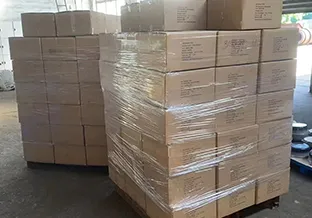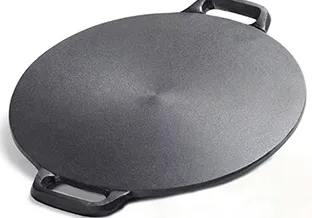
2 月 . 02, 2025 01:14
Back to list
cast iron french oven
The world of culinary tools is wide and varied, yet few items command the respect of professionals and home cooks alike as cast iron French ovens do. Revered for their unmatched durability, optimal heat retention, and ability to uniformly cook a wide range of dishes, these kitchen essentials are a must-have for anyone serious about their culinary craft. This article delves into the unique advantages of cast iron French ovens and the considerations to make when choosing the best one for your kitchen.
However, it’s vital to choose a cast iron French oven that aligns with your specific cooking needs and style. Size is a crucial factor; these pots come in various volumes, usually between 2 to 13 quarts. A 5 to 7-quart oven is a versatile choice for most families, allowing for the preparation of meals without crowding. Additionally, weight can be a concern, as cast iron is inherently heavy. Some newer models incorporate design innovations that make them slightly lighter without sacrificing performance. While considering color might seem purely aesthetic, for some, it factors into kitchen décor and presentation for serving directly from the pot. Most high-quality brands offer a variety of hues, from classic cherry red to serene ocean blue, ensuring compatibility with personal taste and style. Trusted brands, such as Le Creuset and Staub, are renowned for their expertise in producing superior cast iron French ovens. These brands offer a blend of traditional craftsmanship with modern innovation to enhance performance and ease of use. When purchasing, it's wise to buy from authorized retailers to ensure authenticity and to benefit from warranties typically offered on these high-end products. To wrap up, the cast iron French oven stands not only as a culinary icon but as an investment in the future of your food preparation endeavors. They embody the perfect blend of heritage, functionality, and aesthetic appeal, making them a cornerstone in any serious kitchen. Whether you're a seasoned professional or an enthusiastic home cook, a quality cast iron French oven can elevate your cooking, instilling confidence and trust in your culinary creations.


However, it’s vital to choose a cast iron French oven that aligns with your specific cooking needs and style. Size is a crucial factor; these pots come in various volumes, usually between 2 to 13 quarts. A 5 to 7-quart oven is a versatile choice for most families, allowing for the preparation of meals without crowding. Additionally, weight can be a concern, as cast iron is inherently heavy. Some newer models incorporate design innovations that make them slightly lighter without sacrificing performance. While considering color might seem purely aesthetic, for some, it factors into kitchen décor and presentation for serving directly from the pot. Most high-quality brands offer a variety of hues, from classic cherry red to serene ocean blue, ensuring compatibility with personal taste and style. Trusted brands, such as Le Creuset and Staub, are renowned for their expertise in producing superior cast iron French ovens. These brands offer a blend of traditional craftsmanship with modern innovation to enhance performance and ease of use. When purchasing, it's wise to buy from authorized retailers to ensure authenticity and to benefit from warranties typically offered on these high-end products. To wrap up, the cast iron French oven stands not only as a culinary icon but as an investment in the future of your food preparation endeavors. They embody the perfect blend of heritage, functionality, and aesthetic appeal, making them a cornerstone in any serious kitchen. Whether you're a seasoned professional or an enthusiastic home cook, a quality cast iron French oven can elevate your cooking, instilling confidence and trust in your culinary creations.
Previous:
Latest news
-
Extra Large Round Cast Iron Griddle - Heavy Duty Griddle Plate for Even Heating & Versatile CookingNewsJun.10,2025
-
Top Brands of Cast Iron Cookware Durable & Versatile Cast Iron Skillet BrandsNewsJun.10,2025
-
Enamel Coated Cast Iron Pot Durable, Non-Stick & Even Heat CookingNewsMay.30,2025
-
2 Quart Dutch Oven Durable Cast Iron, Even Heating & VersatileNewsMay.30,2025
-
Best Chinese Wok Price Authentic Iron Pans, Fast Shipping & DealsNewsMay.29,2025
-
Non-Stick Cast Iron Skillet with Lid Durable & Easy-Clean PanNewsMay.29,2025


